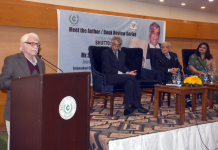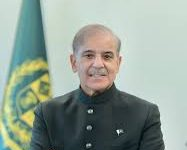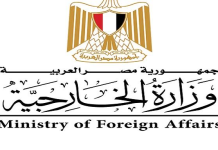DNA
KARACHI – The Federation of Pakistan Chambers of Commerce and Industry’s ruling group has raised concern over keeping monetary policy rate unchanged at 7% for the third consecutive time, however, hailed the SB’s indication of maintaining its accommodative monetary stance in the near-term to support the rare recovery amid uncertain Covid-19 challenges.
The FPCCI’s ruling party, BMP, Chairman Mian Anjum Nisar said that in view of the policy rates in neighbouring countries Pakistan’s 7 percent interest is very high, and its reduction is essential to make Pakistani exporting sector as well as the local industry competitive. He said that after the Corona devastation, Pakistan should take advantage of those export orders canceled by the other regional countries. For this, the government will have to reduce production cost of the industries to avail this offer by the international buyers.
Mian Anjum Nisar said that future anticipated inflation would further decline due to low demand amidst the second wave of coronavirus. On the other hand, the external front is also presently sustainable due to foreign financial support and rescheduling of debt that has supported reduction in current account deficit, he added.
He termed the 7% key policy rate as insufficient, especially in the extraordinary prospects amidst fear of worldwide trade and industrial lockdowns.
Mian Anjum Nisar said that the State Bank’s keeping the discount rate unchanged at 7% is not understandable when it also expresses satisfaction over declining inflation and rising the growth, saying the risks to the outlook for both growth and inflation appeared balanced.
FPCCI former president, referring to the central bank reports, observed that most economic activity data and indicators of consumer and business sentiments have shown continued improvement.
On the inflation front, recent out-turns are also encouraging, suggesting a waning of supply-side price pressures from food. He said that inflation is expected to fall further within the previously announced range of 7-9% for FY21 and trend toward the 5-7% target range over the medium-term.
He said the trajectory of the Covid pandemic is difficult to predict, given still-elevated global cases, the emergence of new strains, and lingering uncertainties about the roll-out of vaccines worldwide.
“The trade and industry needs continued support from the government in the form of lower interest rate amidst such external shocks, he suggested.
He said that the Large-Scale Manufacturing grew by 7.4% year-on-year in Oct and 14.5% in Nov. The manufacturing recovery is also becoming more broad-based, with 12 out of 15 sub-sectors registering positive growth in November and employment beginning to recover. While discussing the external sector, he said the outlook for the external sector has improved further and the current account deficit for FY21 is now projected to remain below 1pc of GDP.
He said the current account remained in surplus during the first half of FY21, at $1.1bn compared to a deficit of over $2bn during the same period last year. This improvement has been mainly driven by workers’ remittances, which have remained above $2bn every month during the current fiscal year, he added.
Encouragingly, exports have also recovered to their pre-Covid monthly level of around $2 billion since Sept, with a broad-based recovery in export volumes recorded in almost all categories in Dec, he added.
Mian Anjum Nisar said that the reduction in electricity tariff for SMEs was the first step towards cut in production cost while the second and vital step toward this direction would be bringing discount rate to the regional level with a view to provide level-playing field especially to the export industry. “The decision would have the same importance for the domestic industry too, as it has also been facing tough competition of cheaper imported merchandize in the country following FTAs with several countries, including China,” he added.
He said: “Businessmen Panel appreciates the central bank to bring its policy rate to 7 percent from a high of 13.25 percent and several other measures of continuing fiscal, monetary and credit stimulus, but suggest the SBP committee more reduction of interest rate to cut it to at least 5 percent. While appreciating the central bank’s role in sustaining economic growth through supporting trade and industry, he said that reduction in interest rate would be vital relief to the business community.
He said SBP should take measures and develop a strategy to protect the pace of economic and trade progress of Pakistan otherwise the country might again face lower industrial growth and shifting of industrial units to the sick industry.

















